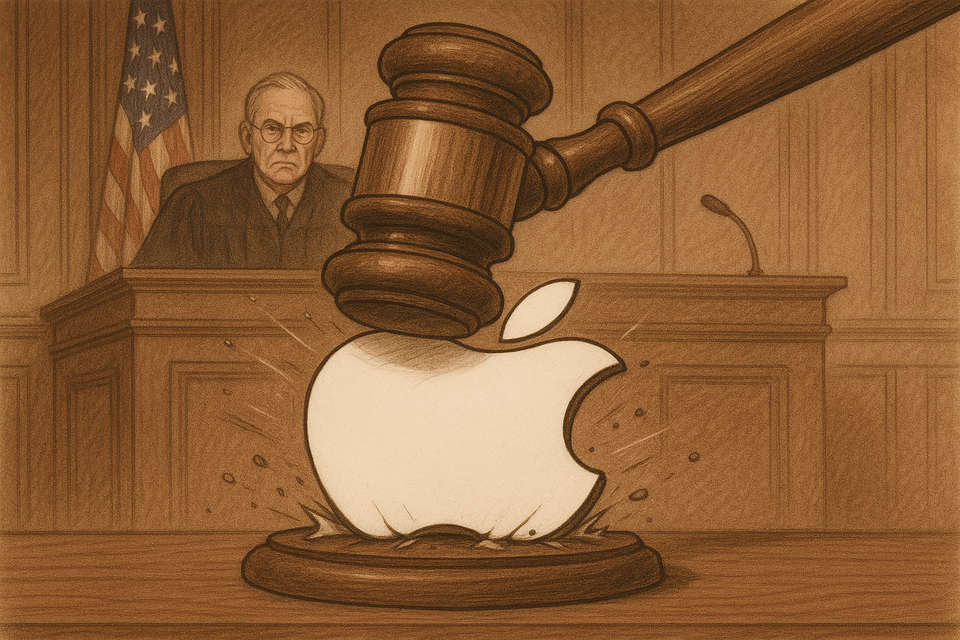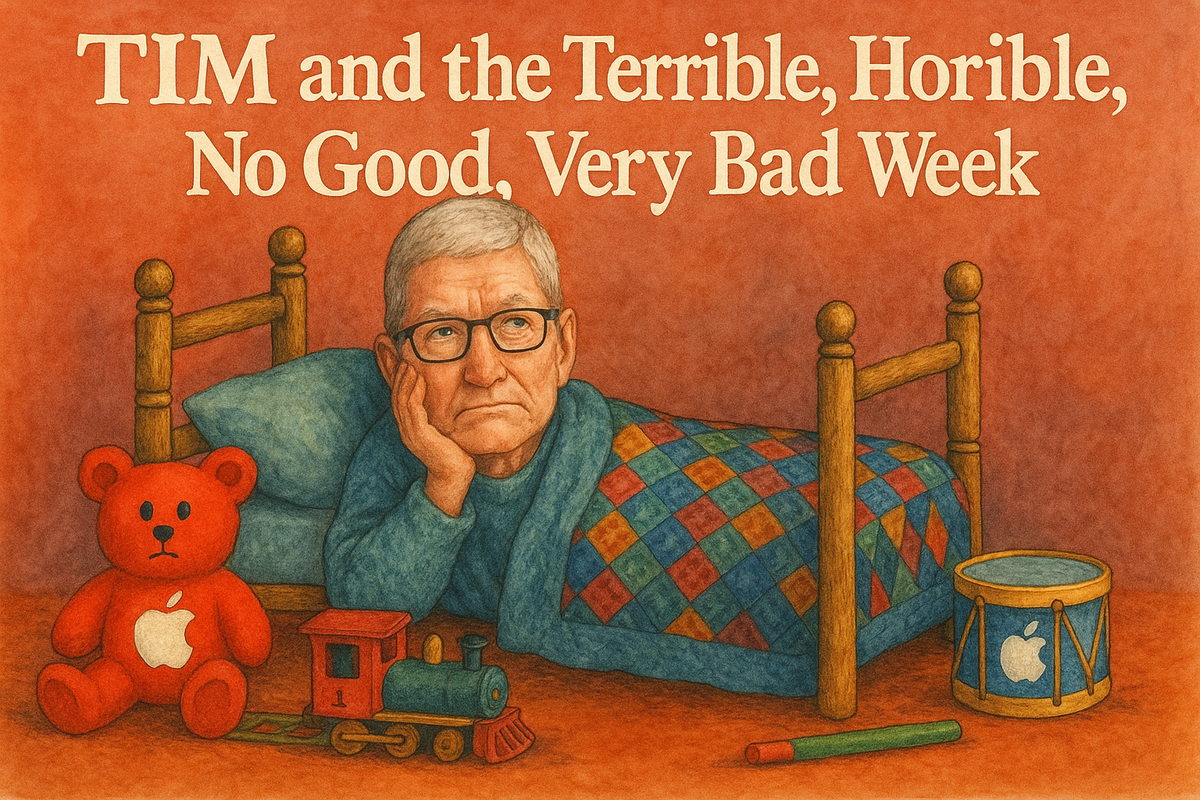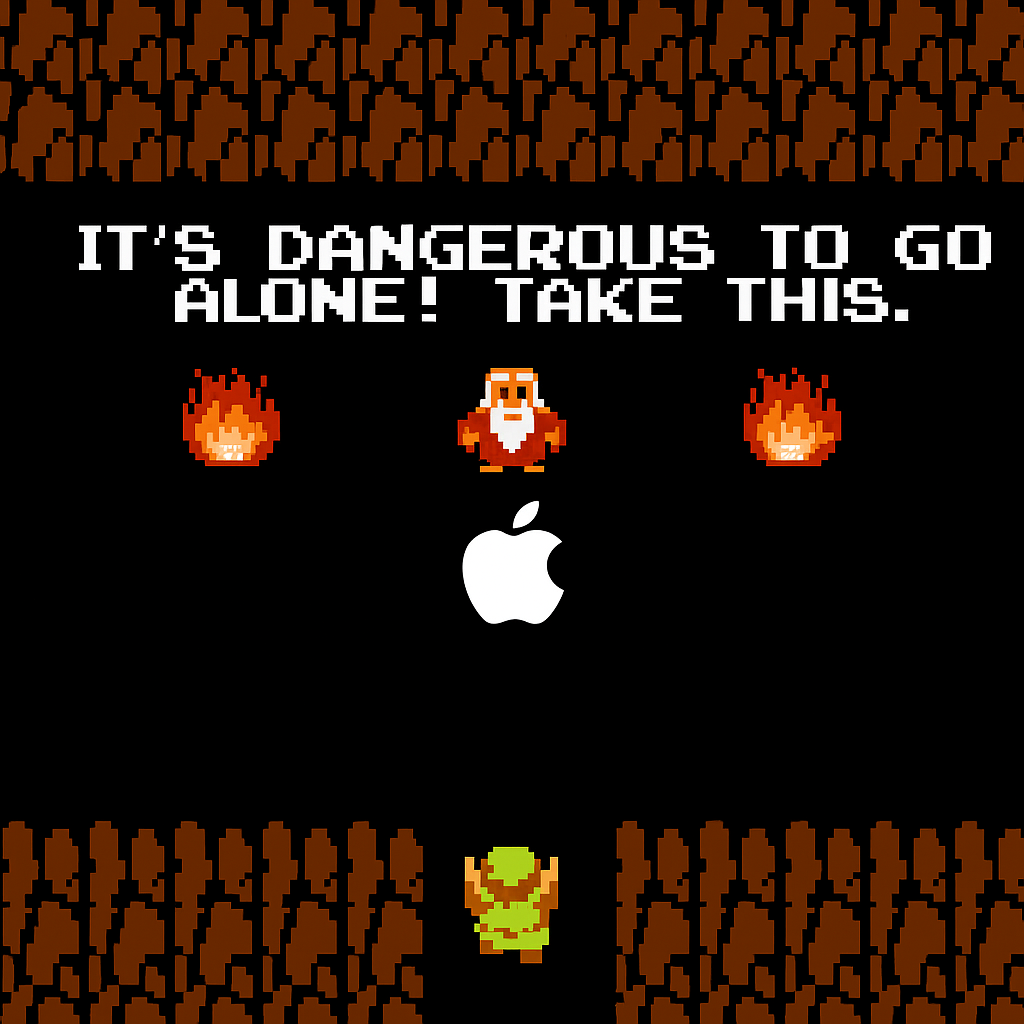App Store Changes Here to Stay with the Denial of Apple's Stay

Remember Apple's bad week from a couple weeks back? Well, it's turning into a bad month. And actually, a bad few months. They're risking a bad year. And perhaps many bad years. The court has rejected their request for an emergency stay on the matter of being forced to allow web-based payments outside of their reach in the App Store.
Here's Mike Scarcella for Reuters:
Apple on Wednesday failed to persuade a U.S. appeals court to pause key parts of a federal judge's order requiring the iPhone maker to immediately open its lucrative App Store to more competition.
The 9th U.S. Circuit Court of Appeals rejected, Apple's request to put the provisions on hold as the tech company appeals the judge's order, which came in a long-running antitrust lawsuit brought by “Fortnite” maker Epic Games.
This is... not good for Apple. Though it's hard to feel too badly for them as it's their own fault in not being able to read both the broader room – in particular within their developer community – and more specifically, the courtroom.
The ruling is as brief as it is definitive – just 191 words, so I'll just put it here:
Apple’s Emergency Motion Under Circuit Rule 27-3 for a Partial Stay Pending Appeal (Dkt. 7) is DENIED. In deciding whether to impose a stay, we consider: “(1) whether the stay applicant has made a strong showing that he is likely to succeed on the merits; (2) whether the applicant will be irreparably injured absent a stay; (3) whether issuance of the stay will substantially injure the other parties interested in the proceeding; and (4) where the public interest lies.” Nken v. Holder, 556 U.S. 418, 426 (2009) (quoting Hilton v. Braunskill, 481 U.S. 770, 776 (1987)). Apple “bears the burden of showing that the circumstances justify an exercise of [our] discretion.” Id. at 433–34. After reviewing the relevant factors, we are not persuaded that a stay is appropriate.
The outstanding motions for leave to file an amicus brief (Dkts. 11, 17, 19, 27, 28, 29, and 30) are all GRANTED.
As far as legal rulings go, this one is decidedly readable by a regular person. Still, I consulted with my lawyer – ChatGPT, Esquire, III – for an even more plain-English interpretation:
Apple's emergency request to pause part of the court’s order while it appeals has been denied.
When deciding whether to grant such a pause (called a "stay"), the court looks at four things:
1) Has Apple shown a strong chance of winning the appeal?
2) Will Apple suffer serious harm if the stay isn’t granted?
3) Will granting the stay harm others involved?
4) Is granting the stay in the public interest?
Apple had the responsibility to convince the court that these factors favored a stay. After reviewing everything, the court didn’t think a pause was justified.
However, the court did approve all the requests to submit supporting “friend of the court” briefs (amicus briefs) from outside parties.
Per the filing, these criteria stem from Nken v. Holder, a 2009 Supreme Court case that set the standard for granting a stay of removal.1 (Which itself cited Hilton v. Braunskill, a 1987 case that set the precedent for when stays should be granted.2) Obviously, the first point would seem to be the most damning for Apple, but it's also possible the court decided points two through four were more important here. But there's also a reason the criteria are listed in this order, "the first two factors of the traditional standard are the most critical." So it's possible the court deems the "serious harm" bit to Apple here as the key to this ruling, but just as likely, if not more so: this court is suggesting that it does not believe Apple is likely to win their appeal.
That will be up to another judge – actually, a set of three judges that would make up the Appellate Court – and if Apple were to lose that appeal, they could also appeal to the Supreme Court. But would the Supreme Court even hear such an argument?
My faux lawyer also tells me it's perhaps less likely because the Supreme Court decides to hear less than 1% of such cases. And the fact that this started on the basis of a state law makes it even less likely.3 My only counter might be – and it's just a total guess – that the Supreme Court might agree to hear the case simply because it's one of the largest companies in the US and the ecosystem they support is a relatively small but visible part of the economy. And it's important for the future of such platforms. But first things, first: the Appellate Court.
That process, by the way, would start relatively soon – perhaps next month – but an outcome wouldn't be likely for another 9 to 18 months depending on a number of factors. Can Apple make a case with the "Takings Clause" element of the 5th Amendment, as Ben Thompson recently argued might be their angle for an appeal? (FWIW, my ChatGPT lawyer views that as "very unlikely" to be a winning argument here – basically because any court would likely view this case as being about economic regulation not property seizure, even IP.) Something else?
If Apple were to lose there, then it would be either to request an "en banc" review from a larger set of Ninth Circuit judges (though this is apparently very rare), or again, to petition the Supreme Court.
Regardless, the outlook looks pretty dire for Apple at this point. To the point where they have to be considering their options beyond the appeals. If they lose those, again, as now looks more likely than not, they'd simply will have bought themselves a bit of time before a definitive ruling. But because this stay was rejected, they'll have to live with the current ruling that whole time. That means that web payments – crucially, with Apple taking a 0% cut – are here to stay. At least for the next year or so. And potentially forever.
Apple would seem to be swimming against an oncoming tidal wave here. And worse, legality aside, they're not doing themselves any favors reputationally by continuing to fight this. Yes, the court is allowing for amicus briefs in their favor, but who is going to file those? Perhaps Google because they have a similar interest with regard to the Play Store.4 (Then again, they find themselves in a weird situation with Apple in that other pesky case which could nuke the all-important – to Apple – Search payments.) But basically every developer, large and small, is going to be in favor of these changes.
And can you just imagine if these policies are in place for a year or more and then Apple actually wins their appeal and tries to shove this genie back in the bottle? Likely in the form of continuing to allow the web payment links, but going back to taking the ridiculous 27% cut for anything flowing out of an app? Obviously, developers would pull those links again, and may in fact pull their apps in protest, starting with Epic. Again. What will the backlash look like at that point? Not good!
So again, Apple has to start making some calculations here about how much all of this is worth to them, both monetarily but also reputationally. And to start getting their house in order in the case of an eventual loss. It would be awesome if Apple would address this all at WWDC and offer some sort of "New Deal" to their developers, but that keynote is already literally in the can.5 And again, Apple is clearly going to continue down the appeals route, as their statement on this rejection makes clear:
Apple in a statement said it was "disappointed with the decision not to stay the district court’s order, and we’ll continue to argue our case during the appeals process."
So instead, they'll presumably work behind-the-scenes to get their software and policies more primed for this future where they're not the only payment option. I still think there's something to my idea of trying to use whatever this new gaming app is as a lifeboat of sorts for Apple to save their all-important gaming revenue, but you-know-who wouldn't like that too much and would be ready to take this war to a whole new level...





1 In an interesting bit of timing/coincidence, this case from 2009 was an immigration case about the deportation of Joseph Nken, a native of Cameroon -- the Supreme Court ruled in his favor of granting the stay in that case.
2 This one was a federal habeas corpus case.
3 This is not legal advice for Apple, I'm using AI, your mileage may vary – though it's not Apple's AI, so it's probably a bit more trustworthy.
4 Yesterday, after the ruling came down, I had noted that this was especially damning for Apple because Google had won their own stay on a similar matter (in a case they lost much more definitively than Apple). But, as Florian Mueller helpfully pointed out, the cases, while similar, are at different stages. And Apple actually did win a stay at the point Google's case is at, back in 2021. And Apple's whole contempt situation is not helping them here, obviously.
5 How amazing would it be for Apple to shoot a "one more thing" addendum to their keynote, where they drop the App Store cuts from 30%/15% to 15%/10%? And formalize the rules where if you want to take your own payments on the web, you can do that -- without Apple taking a cut. There's simply the yearly developer fee and the continued rule that you have to offer Apple's own payment mechanism as an option. They will try to compete for that business. Imagine that. And maybe they lay a path to formalize web distribution of apps worldwide... Okay, now I'm undoubtedly going way too far in my dreaming.





